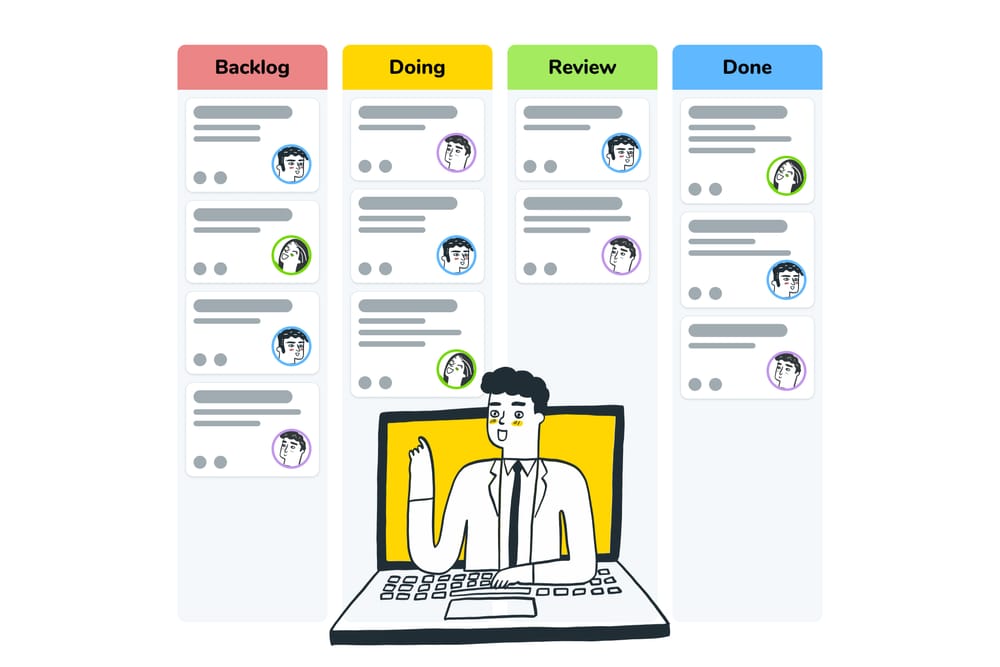It may be a bit confusing to keep up with the full career ladder of software engineers. Closer to the apex, you might find the staff engineer, but you have to traverse the varied rungs of Engineer I, Engineer II, and Senior Software Engineer before you get there.
Still, the “Staff Engineer” title and role seem to spark the most curiosity. In this post, I’ll discuss what exactly a Staff Engineer is, what makes this role so unique, and how they translate business objectives into technical solutions.
What Is a Staff Engineer?
A Staff Engineer is a senior-level position within the engineering hierarchy, typically found in tech companies and large engineering organizations. This role involves not only technical expertise but also leadership responsibilities as an engineering leader. Staff Engineers are often tasked with overseeing complex projects, mentoring junior engineers, and contributing to strategic decision-making within the company through their technical leadership. They serve as technical leaders who bridge the gap between the engineering team and management. Additionally, they contribute to the broader technical vision of the company.
What Are the Skills of a Staff Engineer in Technical Leadership?
To excel as a Staff Engineer, you need to possess a robust combination of technical and soft skills. Here are some of the key skills required:
- Technical Know-How: Mastery in programming languages, software development, system architecture, and other relevant technical areas.
- Technical Direction: Ability to provide technical direction by guiding the technical aspects of tasks without management authority, gaining the trust of team members, and enforcing how and what should be worked on.
- Technical Strategy: Responsible for leading complex engineering initiatives, setting technical standards, and ensuring the quality and scalability of the software architecture. This includes translating business objectives into technical solutions and contributing to the broader technical vision of the company.
- Leadership: Ability to lead projects, guide teams, and influence decision-making processes.
- Problem-Solving: Strong analytical skills to identify, diagnose, and resolve complex technical issues.
- Communication: Excellent verbal and written communication skills to effectively collaborate with team members, stakeholders, and management.
- Mentorship: Experience in mentoring and developing junior engineers.
- Project Management: Skills in managing project timelines, resources, and deliverables.
How Do You Become a Staff Engineer?
Becoming a Staff Engineer typically involves a combination of education, experience, and demonstrated leadership. Here are the steps to achieve this role:
- Education: A bachelor’s degree in computer science, engineering, or a related field is usually required. Advanced degrees can be beneficial.
- Experience: Significant experience in engineering roles, often 7-10 years, with a proven track record of successful projects.
- Skill Development: Continuously improving technical skills, staying updated with industry trends, and gaining expertise in relevant technologies.
- Leadership: Developing leadership and project management skills through experience and possibly formal training. Transitioning to Staff+ levels often involves understanding engineering management and its impact on team dynamics and project success.
- Networking: Building a professional network within the industry can open opportunities and provide mentorship from experienced engineers.
What's the Difference Between a Senior Engineer and a Staff Engineer?
The primary differences between a regular engineer and a Staff Engineer lie in the scope of responsibilities and level of influence:
- Scope of Work: Regular engineers typically focus on specific tasks or components of a project. In contrast, a senior engineer oversees entire projects or significant portions of them, including design plans, liaising with clients, maintaining engineering processes, and managing project budgets.
- Leadership: Staff Engineers take on leadership roles, guiding teams and making strategic decisions, whereas regular engineers may have limited leadership responsibilities. Senior engineers also play a crucial role in mentoring and leading other developers. They’re the glue that keeps engineering teams cohesive and the driving force that ensures timely delivery of projects.
- Experience: Staff Engineers generally have more years of experience and a deeper level of expertise in their field.
What Level Is a Staff Engineer in an Engineering Team?
A Staff Engineer is considered a senior-level position, often equivalent to or slightly below a Principal Engineer or Engineering Manager. This role is part of the higher echelons of the engineering career ladder, indicating a significant level of expertise and leadership. Staff Engineers need to lead without a mandate by demonstrating consistently good judgment and earning organizational authority.
How Much Does a Staff Engineer Make?
Salaries for Staff Engineers can vary based on location, industry, and company size. However, as of recent data, the average salary for a Staff Engineer in the United States ranges from $120,000 to $160,000 per year. In tech hubs like San Francisco or New York, salaries can be higher, reflecting the cost of living and demand for skilled professionals. At Meta, Staff Engineers can make between $600-800,000 a year!
Conclusion
With a blend of advanced technical skills and strong leadership qualities, Staff Engineers drive significant projects, mentor teams, and contribute to the overall success of their organizations. For those looking to advance in their engineering careers, aspiring to become a Staff Engineer can be a rewarding and impactful goal.





